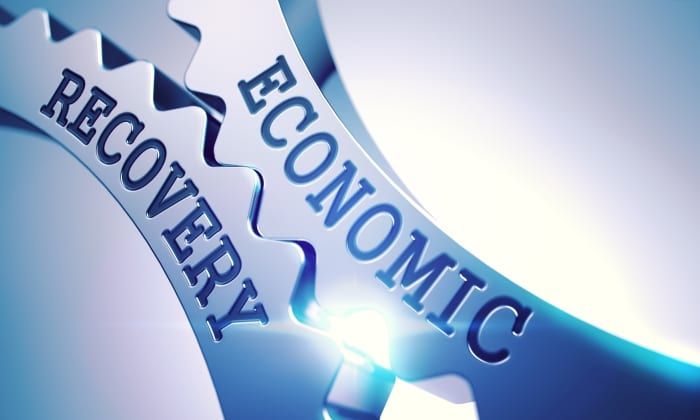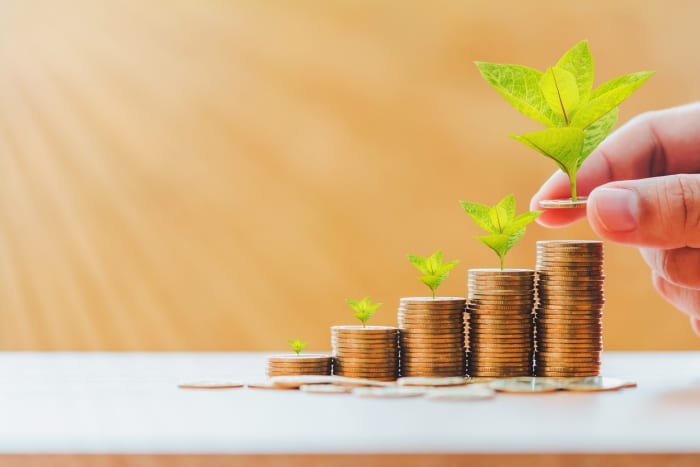
(Stock Image)
Government is pushing ahead with rolling out initiatives in the Barbados Sustainable Recovery Plan (BSRP) 2018, in an effort to return this country’s economy to investment grade in an economically, socially and environmentally sustainable manner.
This disclosure has come from the Director of Research and Planning Unit in the Economic Affairs Division, Patrick McCaskie, who said the Social Partnership Oversight Sub-Committee had met four times already to discuss the way forward with regards to the implementation of the BSRP.
Mr. McCaskie noted that there are three co-chairs from each segment of the Social Partnership – Government, the private sector and labour – and two full members. Government’s co-chair is Minister in the Prime Minister’s Office, Darcy Boyce, while the members are Minister of Foreign Affairs and Foreign Trade, Maxine McClean; and Minister of Commerce, International Business and Small Business Development, Donville Inniss.
The private sector’s representatives are: Chairman of the Barbados Private Sector Association, Charles Herbert (co-chair); President of the Bankers’ Association, Donna Wellington; and Vice President of the Barbados Chamber of Commerce and Industry, Edward Clarke. Labour’s co-chair is President of CTUSAB, Cedric Murrell; while General Secretary of the BWU, Toni Moore; and President of the NUPW, Akanni McDowell, are the other members from labour.
Mr. McCaskie further stated that over the past two months, the Economic Affairs Division had sensitised the key actors who were critical to the execution of the Plan.
“We also sensitised the Committee of Permanent Secretaries, led by acting Head of the Civil Service, Dr. Louis Woodroffe, and they have agreed to meet twice monthly, with one of those meetings to specifically discuss implementation issues and strategies. Officials of the Division have had 19 meetings with representatives of Government agencies that are directly responsible for the implementation of specific strategies within the framework of the BSRP.
“In addition, the Economic Affairs Division will be providing additional details on the broad framework of the implementation plan, and as such, we have provided a detailed template which would enable the various agencies to outline the specific activities that would be undertaken to execute the strategies. The template also allows these agencies to indicate any resources, whether financial, capital or human, that would be required to implement the various activities,” he said.

(Stock Photo)
Mr. McCaskie added that the framework also requires the various agencies to specify the expected outcomes and outputs from the completion of the various initiatives to ensure that the necessary environment was being created to fulfil the broad goals outlined within the BSRP 2018.
He explained that a Joint Economic Group (JEG) was refocused and redeployed to support the implementation/delivery teams in the execution of the strategies within the BSRP. Given that a number of the strategies would require collaboration among the various departments, he pointed out that the JEG provides the forum to facilitate such discussions and decisions. He added that specific sub committees within the JEG had been established to deal with precise objectives and strategies of interest.
According to him, the BSRP 2018, is “a historic and emergency planning document” which was jointly produced by the Social Partnership, and is now being executed by the group. It seeks to return Barbados to steady-state equilibrium over the next four years, while maintaining its social fabric.
Mr. McCaskie noted that this document takes account of the fact that Barbados is not just an economy, but a society, and therefore places the interest of people at the centre of its policy. “In this regard, the BSRP 2018 is anchored in maintaining the country’s fixed exchange rate parity of US$1 to BDS$2, while keeping people employed,” he stressed.
He explained that the path to achieving a return to steady-state equilibrium necessitates that the economy’s macroeconomic indicators would trend back towards the pre-crisis period. He said, for example, that prior to 2007, real GDP was above three per cent; and the net international reserves had peaked to well above 12 weeks import cover. He recalled that in 2007, the unemployment rate was around 7.4 per cent, and the fiscal deficit was more sustainable.
“With these kinds of structural deficiencies, the BSRP is seeking to have a very focused fiscal adjustment programme within the next couple of years. The Medium Term Fiscal Strategy will be completed by the end of June 2018, and its completion will coincide with the Debt Management Strategy, which will allow for a strong coordination mechanism between the macroeconomic and fiscal planning criteria,” he pointed out.

(Stock Photo)
He indicated that the BSRP contains a set of tourism-related projects to the tune of just over $1 billion, and said that once those projects were started, there would be tremendous inflow of foreign exchange to bring the reserve levels back up to a more comfortable state.
The Barbados Sustainable Recovery Plan emerged out of the 2017 Financial Statement and Budgetary Proposals, when Minister of Finance and Economic Affairs, Christopher Sinckler, announced the development of a framework for Barbados’ National Economic and Social Development Restructuring and Enhancement Programme.
After the full Social Partnership meeting last August, three working groups were established to cover the thematic areas of Fiscal Reform, Growth and Sustainability, and Social Responsibility.
The vision of the Plan is to create “a society that is economically, environmentally and socially sustainable, with a return to investment grade”.
Its six broad goals are: to build a comfortable net international reserves level by 2020; achieve fiscal sustainability through a balanced budget by 2020/21; accelerate real GDP growth to reach 3.0 per cent by 2021; establish a credible and sustainable debt management plan; enhance and safeguard the provisions for social development; and reduce the unemployment level on average to 8.0 per cent by 2020.
According to the document, the vision and six goals of the BSRP would be “pursued in the context of an accelerated, time-bound and measured approach to the implementation of an agreed set of more prudent financial management and sustainable growth measures that are socially responsible and sustainable”.
